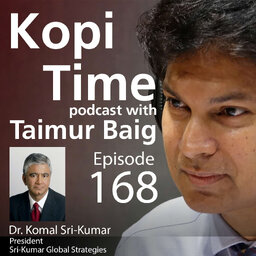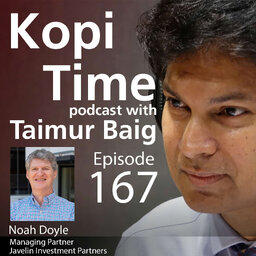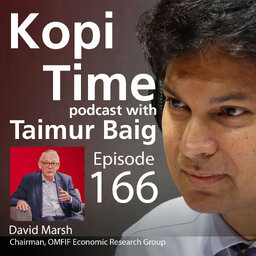Kopi Time E052: Kishore Mahbubani on dealing with China’s rise
Kishore Mahbubani, veteran expert on geopolitics and presently Distinguished Fellow at the Asia Research Institute, talks about the urgent need for constructive engagement with China to avoid the risk of a lose-lose outcome for the world. A pragmatic, trade-off oriented strategy to deal with China would help achieve peace and prosperity for all, while ideologically-driven confrontations would only keep escalating matters, in his view. As always erudite, Mahbubani spans global history and geography to draw in lessons for policy makers and non-government observers alike.
The views, information, or opinions expressed during this Podcast are solely those of the individuals involved and do not necessarily represent those of DBS Bank.
 DBS Economics & Strategy
DBS Economics & Strategy


